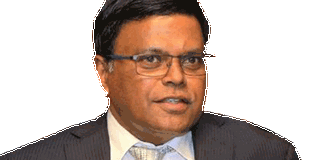Uganda ready for the digital leap

What you need to know:
Transition. To appreciate just how profoundly the digital space has changed in Uganda, consider what the sector looked like the last time you attempted to make communication or do any form of transaction.
The digital industry continues to consolidate and diversify all aspects of life that were previously considered traditional. At this point, we are certain that digital innovations and services will be the norm in the future and therefore, the future is digital.
As is already happening in banking and financial services, retail, telecoms and travel, every other aspect of life is building a digital future based on an always-on connected interaction with the environment.
The whole world and its best knowledge and resources have become local to you, at your fingertips and under your control.
To appreciate just how profoundly the digital space has changed in Uganda, consider what the sector looked like the last time you attempted to make communication or do any form of transaction.
Being a telecommunications company, Airtel Uganda has taken on a lead role in bringing more people online thus delivering critical services to those who need them most. These benefits are accruing from the company’s massive investment in innovations that have digitised Uganda.
Digital access: Uganda has achieved 100 per cent of its sites on both 3G & 4G closing the connectivity gap in the country. It is among the first and few countries in Africa to achieve the milestone of 100 per cent 4G LTE connectivity.
Further, the launch of Airtel Wi-Fi Broadband is bringing the power of uninterrupted Internet to homes and SMEs in Kampala at very affordable prices. Data is as a new oil is now available across Uganda.
Digital affordability: Access to Internet without affordability would be meaningless. Internet access is a fundamental human need after food, shelter and clothing.
Today, the price of mobile data in Uganda is less than one dollar for one GB of data. Also, the launch of 4G has facilitated the migration from feature phone to smartphone. Airtel has championed affordability while scaling up internet access countrywide.
Digital entrepreneurs: Preparedness for the 4th Industrial Revolution in Uganda has been kicked off with access to and affordability of mobile internet.
Every week, Airtel’s My Hustle initiative identifies and promotes budding entrepreneurs through the power of Airtel Internet and Airtel Money. Thanks to this online show, entrepreneurs have been given a free platform to showcase their products and grow their businesses.
It is evident Ugandan entrepreneurs have the passion and problem solving skills to create new digital enterprise impacting across sectors of agriculture, healthcare, fintech, transportation and hospitality.
Digital customer experience and onboarding: The launch of Airtel Self-care app both on iOS and Android is empowering customers while offering them a simple and seamless digital experience.
Customer onboarding process has been successfully digitised with multi-lateral agencies of NIRA, UCC, Telecom companies integrating and accessing the national database online and real-time. New customers are on-boarded digitally with biometric details verified online with NIRA database across the country.
Cashless economy: Uganda like most developing nations is a cash economy. Cash is expensive pushing inflation and cost of money higher.
Digitising cash through Airtel Money has accelerated financial inclusion particularly in rural areas. The usage of digital wallets has been increased through the launch of International Remittances on Airtel Money and merchant services through Airtel Money Pay.
With such a big number of achievements, what does the future hold for digital transformation and what should we take into consideration in order accelerate digital transformation and financial inclusion in Uganda.
Spectrum allocation: Internet speeds can be further enhanced by providing the right spectrum to operators who have invested. Implementation of the new broadband policy of Use or Lose the spectrum is key improving quality of service.
Tax on digitisation: With VAT, Excise Duty and OTT, the tax on internet access is over 50 per cent. Despite lowering data bundles, consumers are burdened with these taxes, directly affecting Digital inclusion.
The introduction of cash withdrawal tax of 0.5 per cent has created an unleveled playing field between mobile money, digital banking and agency banking. Technology has removed the boundaries between banking and telecom. While the tax policy is yet to recognise it.
Embracing digitising by government ministries, departments and agencies: Digitisation will enable MDAs to improve service delivery online and increase transparency. Furthermore, with fully functional digital services, citizens will be able to hold their leaders and representatives accountable.
Communication, commerce and entertainment is transacted across three screens; smartphone, computer screen and television screen. Airtel’s investment has created opportunities and empowered communities to take advantage of the power of internet to transform our lives. The screens are digitally connected presenting enormous opportunities for growth and development. Airtel has set the stage.
Enhanced with digital capabilities: Uganda is increasingly ready to enter the 4th Industrial Revolution to enhance the quality of lives for all Ugandans. The year 2020 is a leap year, Uganda is digitally ready to leap.
Mr V. G. Somasekhar is the managing director of Airtel Uganda.


